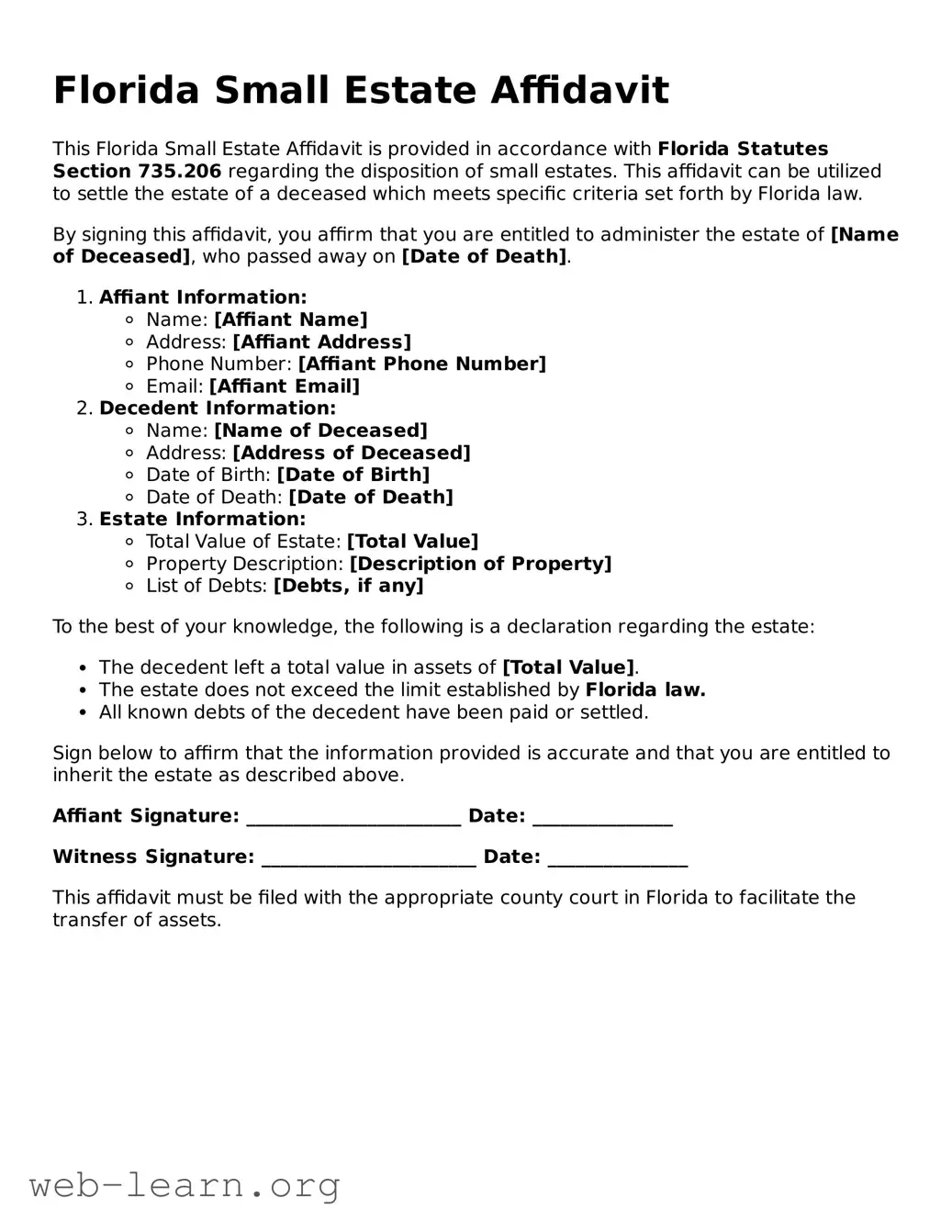Florida Small Estate Affidavit
This Florida Small Estate Affidavit is provided in accordance with Florida Statutes Section 735.206 regarding the disposition of small estates. This affidavit can be utilized to settle the estate of a deceased which meets specific criteria set forth by Florida law.
By signing this affidavit, you affirm that you are entitled to administer the estate of [Name of Deceased], who passed away on [Date of Death].
- Affiant Information:
- Name: [Affiant Name]
- Address: [Affiant Address]
- Phone Number: [Affiant Phone Number]
- Email: [Affiant Email]
- Decedent Information:
- Name: [Name of Deceased]
- Address: [Address of Deceased]
- Date of Birth: [Date of Birth]
- Date of Death: [Date of Death]
- Estate Information:
- Total Value of Estate: [Total Value]
- Property Description: [Description of Property]
- List of Debts: [Debts, if any]
To the best of your knowledge, the following is a declaration regarding the estate:
- The decedent left a total value in assets of [Total Value].
- The estate does not exceed the limit established by Florida law.
- All known debts of the decedent have been paid or settled.
Sign below to affirm that the information provided is accurate and that you are entitled to inherit the estate as described above.
Affiant Signature: _______________________ Date: _______________
Witness Signature: _______________________ Date: _______________
This affidavit must be filed with the appropriate county court in Florida to facilitate the transfer of assets.
